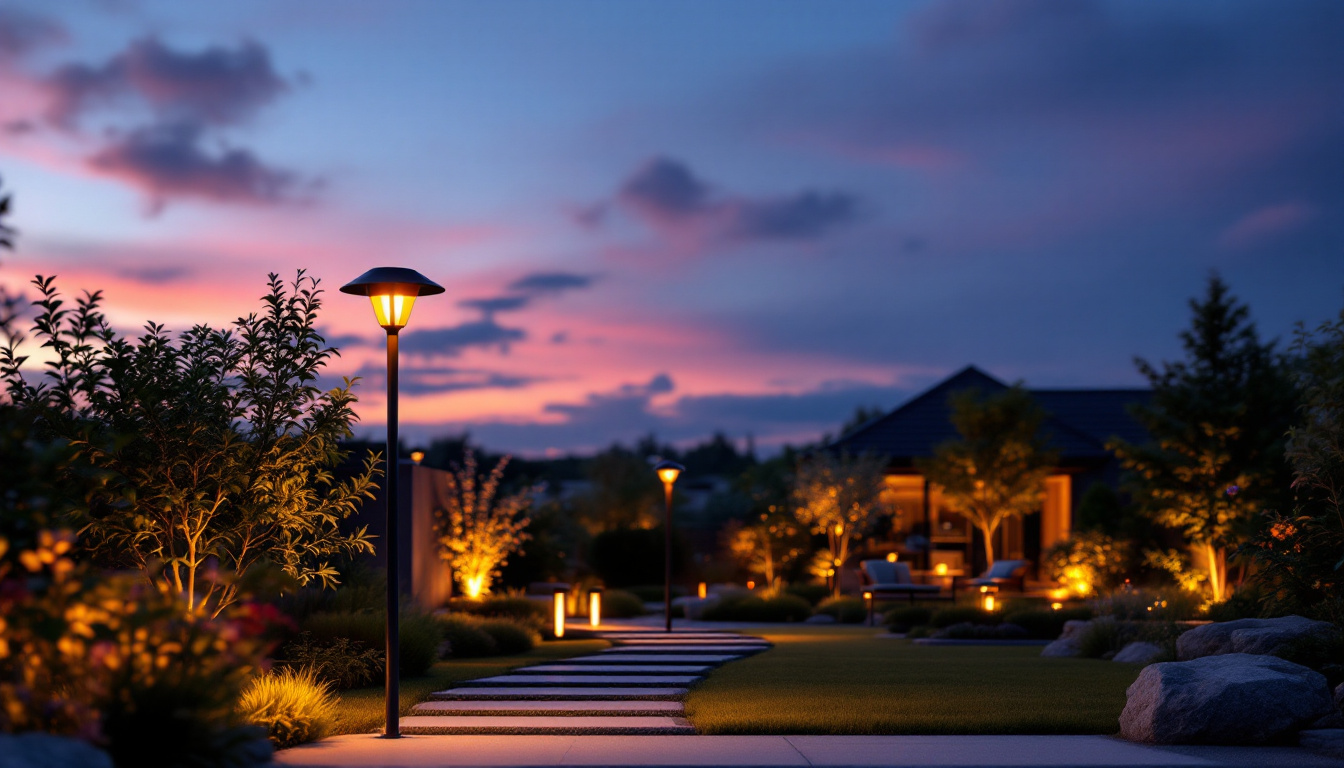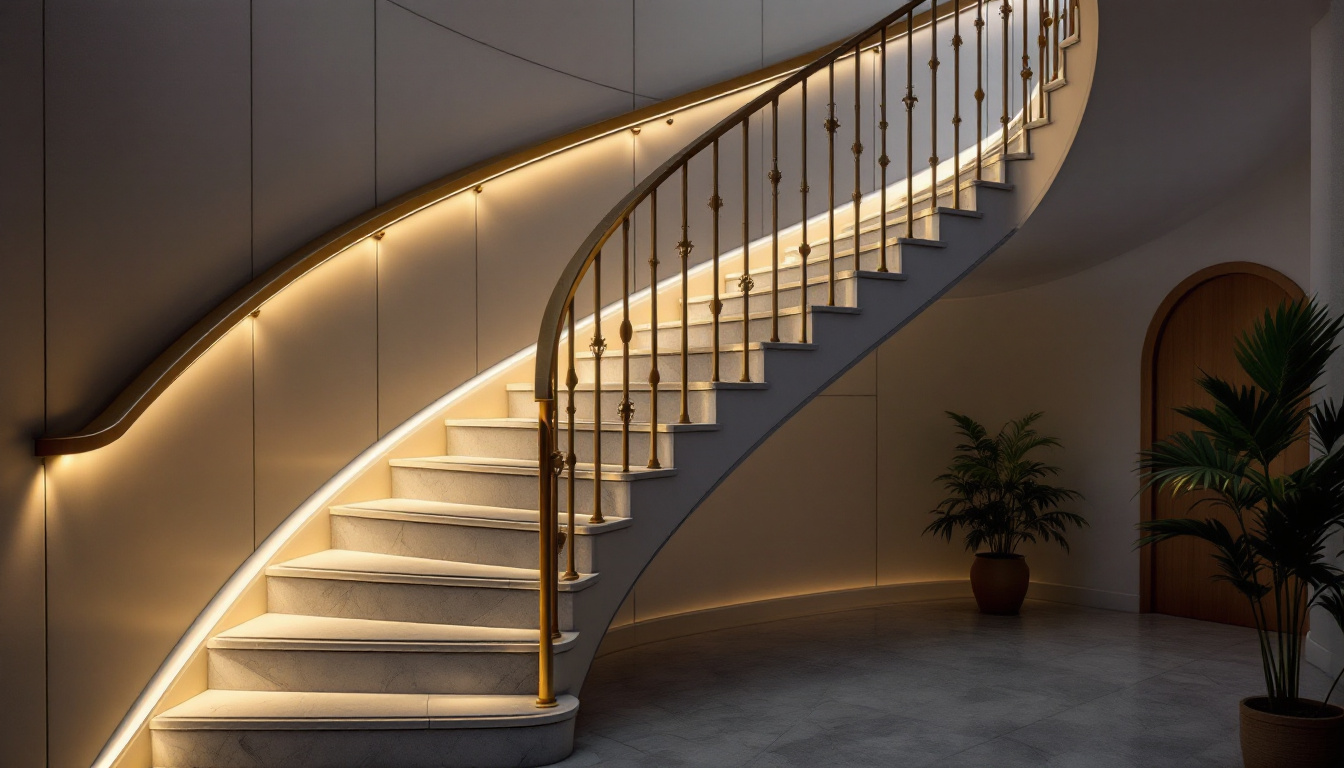
In recent years, the demand for sustainable and energy-efficient solutions has surged across various sectors, including landscaping. solar-powered landscape lights have emerged as a popular choice for both residential and commercial projects. These lights not only enhance the aesthetic appeal of outdoor spaces but also contribute to environmental conservation by reducing reliance on traditional power sources.
For lighting contractors, understanding the benefits and applications of solar-powered landscape lighting is crucial. This technology offers a unique opportunity to meet client needs while promoting eco-friendly practices. As more homeowners and businesses seek sustainable options, incorporating solar-powered lights into lighting projects can set contractors apart in a competitive market.
Solar-powered lights utilize photovoltaic cells to convert sunlight into electricity. During the day, these cells absorb sunlight and store energy in rechargeable batteries. When night falls, the stored energy powers the LED bulbs, illuminating outdoor spaces without the need for wired connections. This technology has evolved significantly, resulting in more efficient and durable products that can withstand various weather conditions.
The efficiency of solar lights has improved dramatically, making them a viable option for a wide range of applications. From garden paths to security lighting, solar-powered solutions can cater to diverse landscaping needs. For contractors, this versatility opens up new avenues for design and implementation.
One of the most compelling advantages of solar-powered landscape lights is their cost-effectiveness. With no wiring or installation costs associated with traditional lighting systems, contractors can save time and resources. Additionally, the long-term savings on electricity bills can be a significant selling point for clients.
Moreover, solar lights are easy to install and require minimal maintenance. Once set up, they can operate autonomously, with little oversight needed. This ease of use is particularly appealing for clients looking for hassle-free outdoor lighting solutions. Furthermore, the aesthetic appeal of solar lights has grown, with various designs available that can complement any landscape style, from modern to rustic. Many models now feature decorative elements that enhance the visual appeal of gardens and patios, making them not just functional, but also a stylish addition to outdoor spaces.
In addition to their practical benefits, solar-powered landscape lights also play a significant role in promoting safety and security. By illuminating dark pathways and entryways, they help prevent accidents and deter potential intruders. This added layer of security is particularly important for homeowners who may be concerned about nighttime safety. Furthermore, many solar lights come equipped with motion sensors, which can enhance security further by providing illumination only when movement is detected, thereby conserving energy while ensuring safety. This dual functionality makes them an attractive option for both residential and commercial properties, appealing to a broad audience looking to enhance their outdoor environments.
When incorporating solar-powered lights into landscape projects, several design considerations come into play. The effectiveness of solar lights is heavily influenced by their placement and the specific requirements of the outdoor space.
Contractors must consider factors such as sunlight exposure, the type of landscape features, and the overall aesthetic goals of the project. Understanding these elements can help ensure that solar lights perform optimally while enhancing the beauty of the outdoor environment.
One of the most critical factors in the effectiveness of solar-powered lights is sunlight exposure. Ideally, solar lights should be placed in areas that receive direct sunlight for a significant portion of the day. Shaded areas may result in diminished performance, leading to inadequate illumination during the night.
Contractors should assess the landscape during different times of the day to identify optimal locations for solar lights. This may involve considering the positioning of trees, buildings, and other structures that could obstruct sunlight. By strategically placing lights, contractors can maximize their efficiency and ensure client satisfaction.
In addition to considering the physical layout, it is also beneficial to evaluate seasonal changes that might affect sunlight exposure. For instance, deciduous trees may provide ample sunlight in the summer but cast shadows in the winter. By taking a holistic view of the landscape throughout the year, contractors can make informed decisions that enhance the longevity and effectiveness of the solar lighting system.
Not all solar lights are created equal, and selecting the right fixtures is essential for achieving desired outcomes. There is a wide variety of solar landscape lights available, including path lights, spotlights, and floodlights. Each type serves a unique purpose and can be utilized to create different effects in the landscape.
Contractors should consider the specific needs of the project when choosing fixtures. For instance, path lights are ideal for guiding foot traffic, while spotlights can highlight architectural features or landscaping elements. The right combination of fixtures can create a cohesive lighting design that enhances the overall ambiance of the space.
Moreover, the choice of materials and finishes for solar lights can significantly impact their durability and aesthetic appeal. Options range from sleek modern designs in stainless steel to rustic styles made from weather-resistant plastics. By selecting fixtures that align with the overall design theme of the landscape, contractors can ensure that the lighting not only serves a functional purpose but also contributes to the visual narrative of the outdoor space.
Many contractors may encounter projects that already have existing lighting systems. Integrating solar-powered lights with traditional fixtures can be a strategic way to enhance the overall lighting design while promoting sustainability. This approach allows contractors to provide clients with a hybrid solution that combines the benefits of both technologies.
When integrating solar lights, it is essential to consider the overall aesthetic and functionality of the lighting system. Ensuring that the solar fixtures complement the existing lights can create a harmonious look while maintaining the desired level of illumination.
Additionally, contractors should evaluate the energy efficiency of the combined systems. By analyzing the power consumption of traditional fixtures alongside the renewable energy provided by solar lights, they can offer clients insights into potential cost savings on energy bills. This not only enhances the appeal of the solar integration but also underscores the importance of sustainability in modern landscape design, encouraging clients to make environmentally conscious choices for their outdoor spaces.
While solar-powered landscape lights offer numerous advantages, there are challenges that contractors may face during installation. Understanding these challenges and having solutions at hand can streamline the process and improve client satisfaction.
The performance of solar lights is heavily dependent on the quality of their batteries. In some cases, clients may express concerns about the longevity and reliability of solar lights, particularly in regions with less sunlight. To address this, contractors should educate clients about the importance of battery maintenance and the benefits of investing in high-quality solar lights.
Additionally, offering options for upgraded batteries or solar lights with built-in energy-saving features can help alleviate concerns about performance. By providing clients with reliable solutions, contractors can enhance their reputation and build trust.
Weather conditions can significantly impact the performance and durability of solar lights. Contractors should ensure that the selected fixtures are designed to withstand various environmental factors, such as rain, snow, and extreme temperatures. Choosing lights with robust materials and weatherproof ratings can help mitigate potential issues.
Moreover, educating clients about the importance of regular maintenance can prolong the lifespan of solar lights. Simple tasks, such as cleaning the solar panels and checking for damage, can ensure optimal performance throughout the year.
Examining successful solar lighting projects can provide valuable insights for contractors looking to incorporate solar-powered solutions into their offerings. These case studies highlight the versatility and effectiveness of solar landscape lights in various settings.
In a recent residential project, a contractor was tasked with illuminating a sprawling garden space. The homeowner desired an eco-friendly solution that would enhance the garden’s beauty without increasing energy costs. By strategically placing solar path lights along the walkways and solar spotlights to highlight key features, the contractor created a stunning outdoor environment that met the client’s needs.
The result was a beautifully lit garden that not only provided functionality for evening gatherings but also showcased the homeowner’s investment in sustainable practices. This project served as a testament to the effectiveness of solar lighting in residential settings.
Another successful project involved a commercial property looking to enhance its outdoor ambiance while promoting sustainability. The contractor proposed a combination of solar floodlights and decorative solar lanterns to illuminate the parking lot and outdoor seating areas.
The outcome was a well-lit environment that improved safety and aesthetics. The property owner was thrilled with the results, particularly the cost savings associated with reduced electricity usage. This project demonstrated how solar-powered lights can be effectively integrated into commercial landscapes, providing both functionality and visual appeal.
The future of solar-powered landscape lighting appears bright, with ongoing advancements in technology and design. As more consumers prioritize sustainability, the demand for solar solutions is expected to grow. For lighting contractors, staying informed about the latest trends and innovations in solar lighting will be crucial for meeting client expectations.
Emerging technologies, such as smart solar lights that can be controlled via mobile apps, are set to revolutionize the industry. These innovations will not only enhance user experience but also provide contractors with new opportunities to offer cutting-edge solutions to their clients.
As the world continues to shift towards sustainable practices, incorporating solar-powered landscape lights into projects is a proactive approach for lighting contractors. By promoting eco-friendly solutions, contractors can position themselves as leaders in the industry, appealing to environmentally conscious clients.
Furthermore, educating clients about the benefits of solar lighting can foster a greater appreciation for sustainable practices. By emphasizing the long-term savings and environmental benefits, contractors can help clients make informed decisions that align with their values.
Solar-powered landscape lights represent a significant opportunity for lighting contractors to enhance their projects while promoting sustainability. With their cost-effectiveness, ease of installation, and versatility, solar lights can meet diverse client needs and elevate outdoor spaces.
By understanding the technology, design considerations, and potential challenges, contractors can successfully incorporate solar lighting into their offerings. As the demand for sustainable solutions continues to grow, embracing solar-powered landscape lights may very well be the missing piece in many lighting projects.
Ready to transform your lighting projects with the power of the sun? LumenWholesale is here to light the way. Our premium, spec-grade solar-powered landscape lights are designed to meet the highest industry standards, ensuring you deliver reliable, high-performance lighting to your clients. With unbeatable wholesale prices and the convenience of bulk buying without hidden fees, you can offer sustainable solutions that don’t compromise on quality or value. Elevate your outdoor spaces and embrace the future of eco-friendly lighting with LumenWholesale. Wholesale Lighting at the Best Value is just a click away.

Discover why purchasing fluorescent light bulbs in bulk from local distributors might not be the best choice.

Discover why T8 LED tube lights are essential for lighting contractors.

Discover how ballast for fluorescent lights can enhance energy efficiency and performance in lighting projects.

Discover how staircase lighting is revolutionizing the success of lighting contractors.